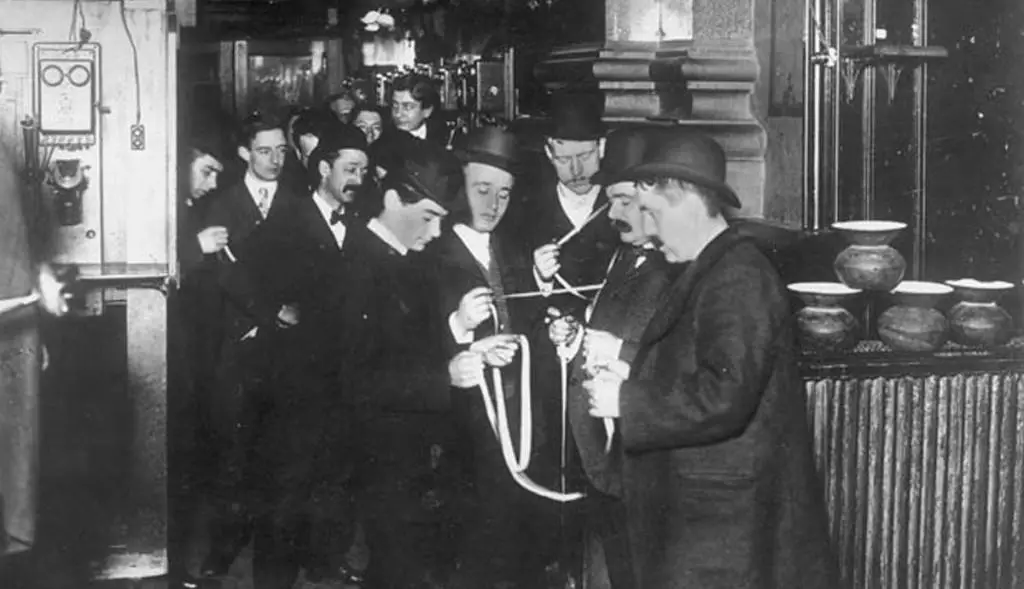CFDs and binary options are among the most advertised financial products around the world, with the promise of easy money, accessible to everyone everywhere at a distance of a click are enticing, but far from reality. But what are the risks of CFDs and binary options? Are CFDs and binary options bad or dangerous?
Every day regular people are induced into trading CFDs and binary options like it's the best decision they will ever make in their lives.
Well, it's not so easy, and in fact today there are countless brokers offering the same product to inexperienced investors that are not fully aware of what CFDs and binary options are and their risks.
What are CFDs?
CFD is an acronym for contract for difference. Although the name sounds tempting, it is nothing more than a bet. People make bets all the time, between friends or coworkers but this is a different type of financial instrument.
When you buy or sell a CFD, you are essentially betting that a certain underlying asset will either go up or down in price. You do not actually buy or sell the underlying asset, you just speculate on its price movement.
Although it can be a great way to benefit from sudden moves in certain asset prices, it can also be extremely risky.
Speculation is something that should be left to professionals. This does not mean that you cannot speculate with a small amount of money, but by doing it on a regular basis, you will most likely end up losing your money.
The risks of CFDs
Different brokers will have different statistics regarding CFDs, and they are legally obliged to disclose them to their customers. The data is not conclusive, but on average 90% of the people trading CFDs lose 90% of their money in 90 days.
There is hope that you might be on the 10% who actually make money. If you are, there are also several reasons why that could be, and one of them is sheer luck.
In reality, CFDs have high commissions, and there is a reason why most of the people who trade them end up losing money. Brokers set up commissions and spreads for these products so that you end up barely making any money.
What are binary options?
Binary options are similar to CFDs, in which they allow traders to speculate on the price movement of a certain asset. They are structured differently, and can sometimes offer a fixed or variable payout.
Binary options usually have an even lower time frame than CFDs, they allow you to speculate on how the price will fluctuate in as little as one minute.
The risks of binary options
Binary options allow you to trade in smaller time frames, which is not necessarily good. At the same time, the option expires at the end of that time frame.
This limits the ability to make money, at least with CFDs you can choose when to get in, and when to get out.
Binary options end up restricting users, in the time frame of each trade, as well as the payout. The spread, in a very short time, can also heavily affect your returns.
How CFD and binary options brokers make money
 Source: Maritime
Source: Maritime
Since brokers know that their customers lose money most of the time, when you place a trade on a CFD or binary option, the broker is taking the opposite bet and has to pay you in case they are wrong.
On top of this, there are commissions and spreads. Spread is the difference between the current price and the price you will pay.
Spread
So let’s say for instance EUR/USD is trading at 1.1862, and you think it will go higher. When you place the trade, you end up starting at 1.187, which takes away some of your upside. In this case, even if the EUR/USD reaches 1.1869, you will still be losing money.
Currency spread
Additionally, some brokers will also charge a commission, and sometimes depending on the product a currency spread.
Let’s say your account is in euros, and you want to trade a certain American stock that is traded in dollars. The broker will charge a higher exchange currency and also make some money on that.
Leverage
While you are at it, you should also get some leverage to see if this trade really goes the way we want. Caution is advised when dealing with leverage, especially when some brokers allow 1:100, and even 1:500, which is something difficult to grasp.
Leverage when trading binary options and CFDs just translates into losing money even faster than those 90 days. Sometimes you can even lose more than what you deposited.
Knowing this, the brokers also make money, once you take these leveraged bets. They loan you the difference between your account balance, and the amount you want to trade.
The broker formula
It is pretty easy to put together a formula that explains how these brokers make money. Let’s try to break it down, so you can understand exactly how brokers make their money.
The two main sources of revenue for brokers are spreads and commissions. Although some brokers do not charge a commission, the spreads tend to be higher. There are also some brokers that have a 0 spread, and then the commissions tend to be higher to adjust for that.
For those traders that use leverage, you will be charged interest on the money you borrow from your broker. Brokers will often borrow the money that they eventually loan you. The key here is that they charge you higher interest than the interest they are paying on that capital.
On top of that and perhaps the most controversial topic that is often avoided by some people in the industry is OTC gain. It might sound complicated but it is pretty simple. See, your broker knows that most of the time you will be wrong.
For that reason, the broker is willing to bet that your trade is wrong, by taking the opposite side of that trade. OTC gain is the money the broker makes by taking the opposite side of your trades.
If we put all of this together:
Revenues= Spread + Commission + OTC gain + Financing difference
Most of the revenues are then used to acquire new customers. Since most of the clients lose money, brokers constantly require new customers with new capital. This forces most brokers to spend a big chunk of their revenues on marketing, sometimes through affiliate programs.
Bucket shops
 Source: Trading
Source: Trading
You are probably wondering what a bucket shop is. Well back in the 19th century, people were also interested in trading stocks and mesmerized by sudden moves in prices that could make them rich overnight. Bucket shops were common across the US, in towns of all sizes.
They catered to gamblers that wanted to speculate on market moves. Bucket shops were the ideal place for that. Most of those establishments operated without any license or supervision, and they allowed their customers to bet on price movements without buying or selling the underlying asset.
They operated until the early ’20s, until the Martin Act. was passed, which essentially banned every bucket shop from operating. You can see the resemblance between bucket shops, and brokers that today allow you to trade CFDs and binary options just the same way.
The only difference is that today, the brokers are regulated and supervised by different authorities. In an effort to protect investors.
Financial gurus
Today the world is so much different than in the 1920s. The internet has changed everything we do, and how we do it.
Financial gurus and fraudsters were also common in the 19th century, after all it was when Charles Ponzi was born. The main difference today is how many people these so-called financial gurus can reach.
With the help of the web, they can reach millions of people, and swindle them easily. Perhaps this was also common practice in the 19th and 20th centuries, just with a different approach.
Because brokers have to replace their losing clients with new clients, and new money They use intricate marketing techniques to bring as many new customers as possible.
Most of the brokers that allow investors to trade CFDs and binary options will often use affiliate programs. This is where the conflict of interest starts. Those individuals with enough exposure to a large audience will try to get as many of their viewers to sign up to these brokers.
They can either get a single payment fee, or an ongoing fee like a percentage of the commission customers pay since they start the account.
These so-called gurus sometimes persuade individuals without sufficient knowledge of this type of product to create an account and trade. In reality, most of those new customers will certainly lose a large chunk of their money, and some of it goes to the promoter. This poses a major conflict of interest.
Conclusion
These financial products end up being detrimental to most traders, and investors. Especially those who do not fully understand how these products are regulated, and what is behind them. Accessing these complex financial products has become increasingly easier, and it has become difficult to keep unsophisticated investors and traders away from such platforms.
The truth is that most of these traders will lose money on long-term trading of CFDs and binary options. There are far better options out there to put your money to work.
A simple index fund with a passive investing strategy seems to be a far better investment long-term, and it is also less stressful. Remember that most brokers want you to trade as much as possible. The more you trade, the bigger their commissions and their profits.
To make money trading you need volatility, that is what makes the price appreciate or depreciate rapidly. As you restrain the time frame of your trade to just a few minutes, it becomes nearly impossible to capture big swings in price.
The big swings are where traders make the bulk of their profits. For that reason, binary options and very short CFDs can be described as picking pennies in front of a steamroller, a popular is Wall Street sayings when investors risk a lot of money to make just a little.
You are basically skimming bid/ask in a very short time frame, with large spreads, and paying very high commissions to do so.
Most brokers have a conflict of interest with their clients. They know most customers will eventually lose most of the money, but they also need them to trade as often as possible, and with as much capital as they can.

